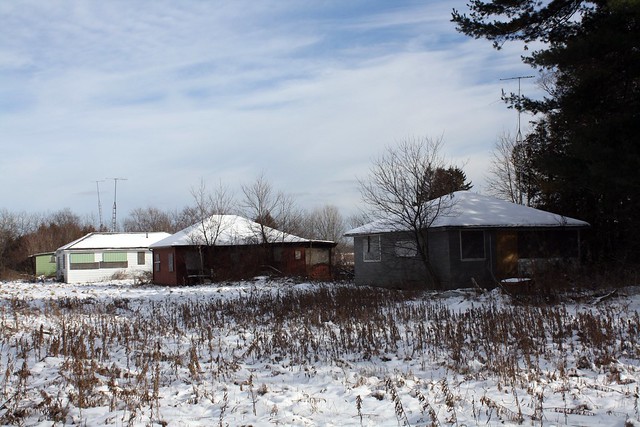
Welcome to Camp Yungvelt, or rather bagrisn keyn Camp Yungvelt.
In 1925, The Workmen's Circle, which operated two secular Yiddish schools in Toronto, established Camp Yungvelt as an extension to the school's curriculum. For the first year, the camp was located at Lake Wilcox, north of Toronto. In 1926, the camp relocated to this location in Pickering. Itche Goldberg, an internationally renowned Yiddish poet, literary critic and author of children's books became the camp director in 1927. Goldberg was a life long activist for preserving secular Yiddish culture and language. Thousands and thousands of young Jewish children spent time at Camp Yungvelt until it closed it 1971, at which time the land was sold.

On a sunny day in January 2011, Camp Yungvelt was the second of three planned abandonment explorations for Dallas, Emceeay and myself. We approached cautiously. Rumours that the current property owner is an angry farmer willing to protect his land with a 12 gauge shotgun could not be substantiated, but they also could not be ignored.
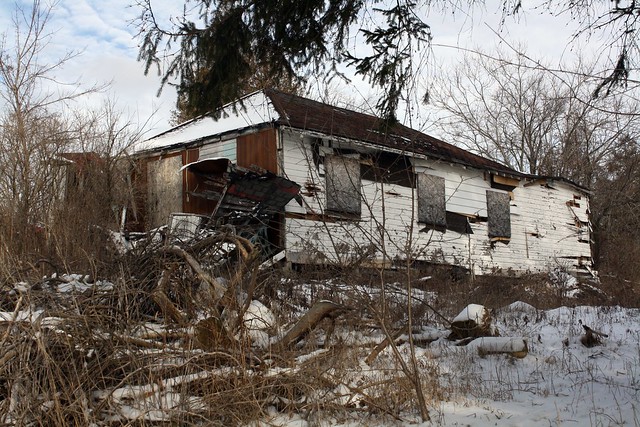
In behind the occupied residence of said farmer, 20 or so cabins still remain. I cannot seem to find the words to explain exactly what it felt like to explore these cabins, but I'll give it my best shot. It was like time travel, or rather a glimpse into a forgotten past. It was a real world history lesson, and a remarkable experience unlike any of my other explorations. Aside from the natural decay brought on by 41 years of Mother Nature's wrath, Camp Yungvelt is frozen in the year 1971. The cabins are still furnished with couches and chairs, fridges and stoves, beds and televisions from a forgotten era. Black and white photographs give life to the cabins and put faces on some of the people that came and went many decades ago. Stacks of plates rest on tables and shelves, and ceramic teapots sit atop stoves and counters. Curtains and drapes still adorn window frames, and clothing, slippers and hats still hang from hooks on the walls and doors 41 years after the camps closure. The decay is the only thing that is current and representative of the modern era. Roofs and floors alike are collapsing in on themselves. The feces and carcasses of critters are the only signs that life has continued here.
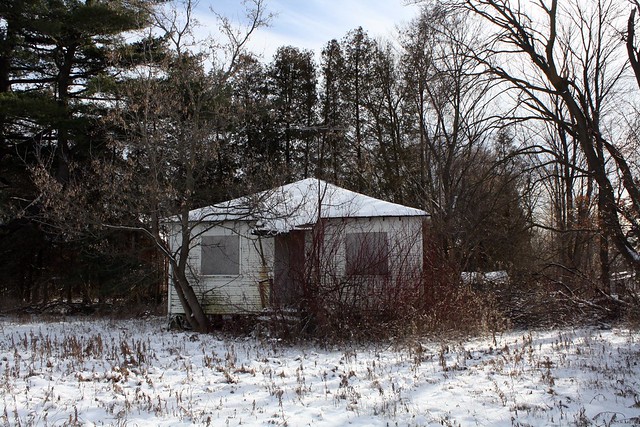
With no further adieu, to the theme of traditional Yiddish names and their meanings, bagrisn keyn Camp Yungvelt.
Mannis (God is with us)

Selig (Happy)

Zalman (Peace)

Meyer (He who illuminates)
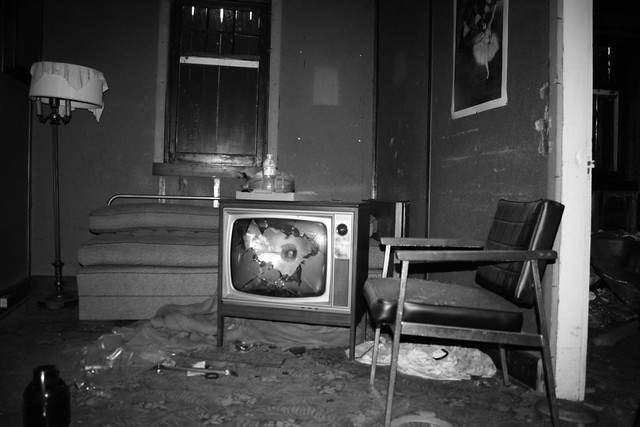
Koppel (Supplanter)
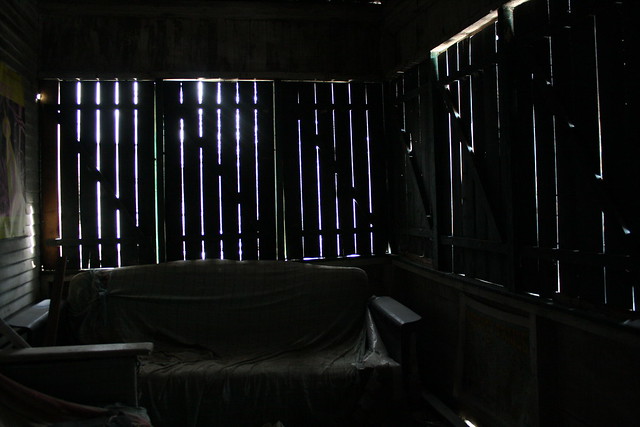
Libkeh (Loved one)
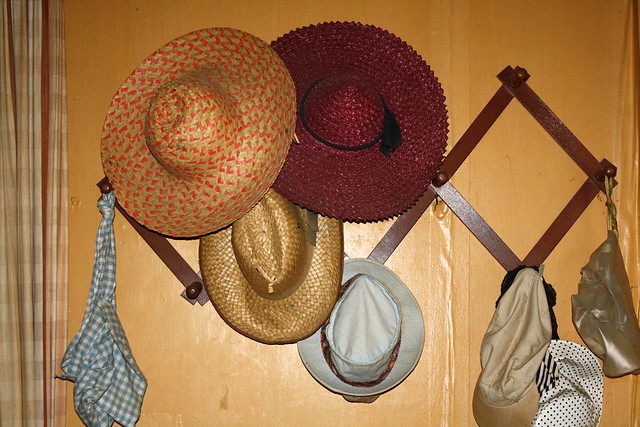
Faivish (Bright)
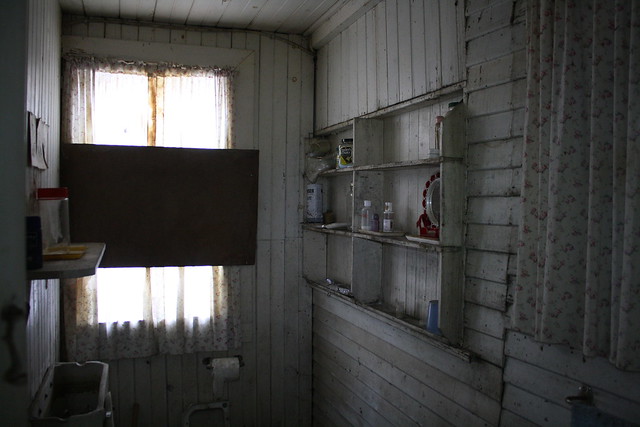
Mirele (Uncertain; maybe bitter)
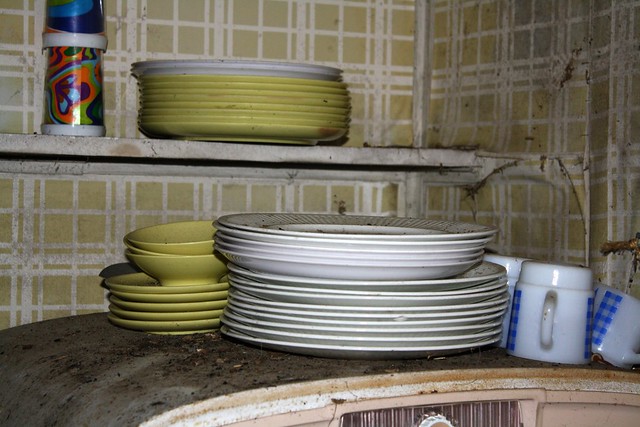
Frayda (Joy)
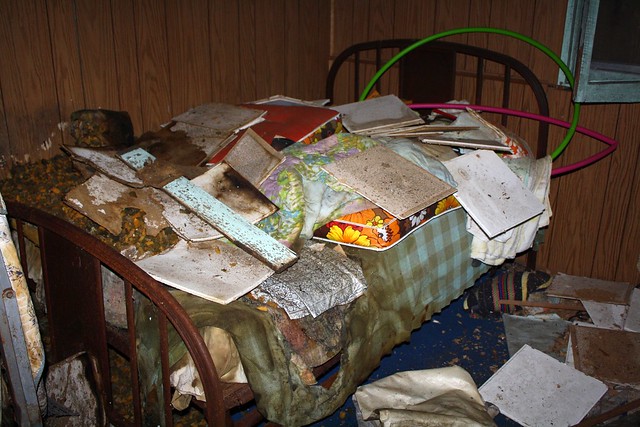
Shimmel (Listening)
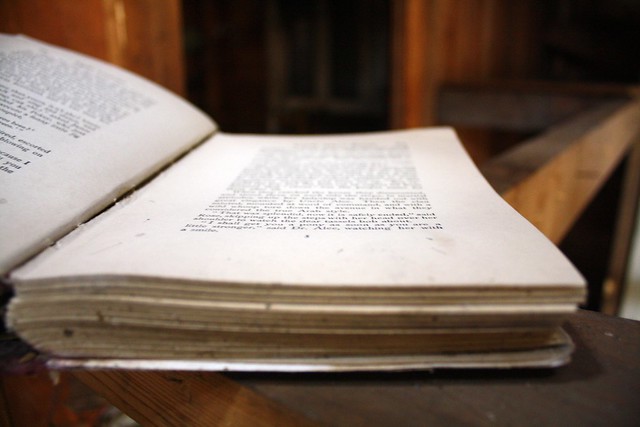
Shaina (Beautiful)

Charna (Dark)
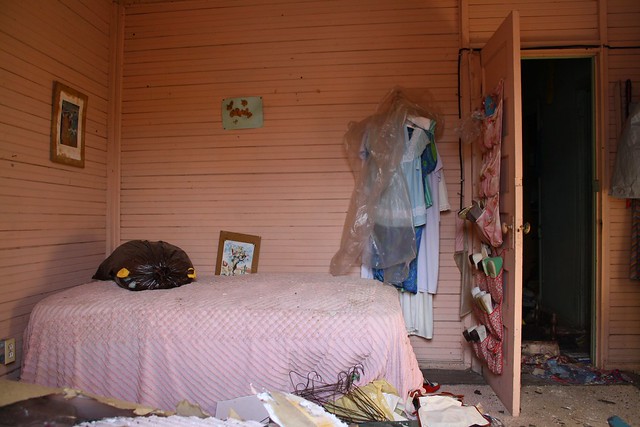
Zusa (Sweet)
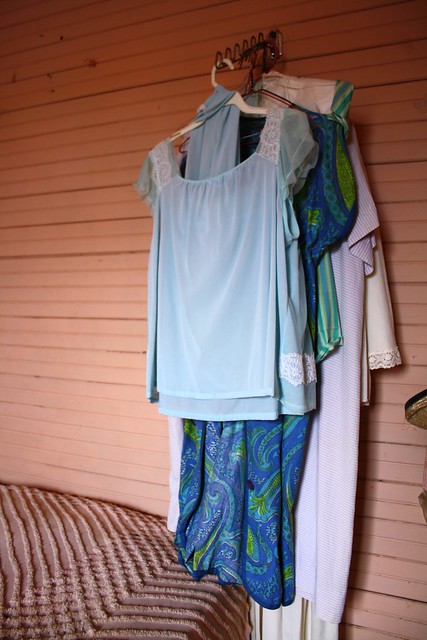
Hamel (Water meadow)

Volf (Wolf)
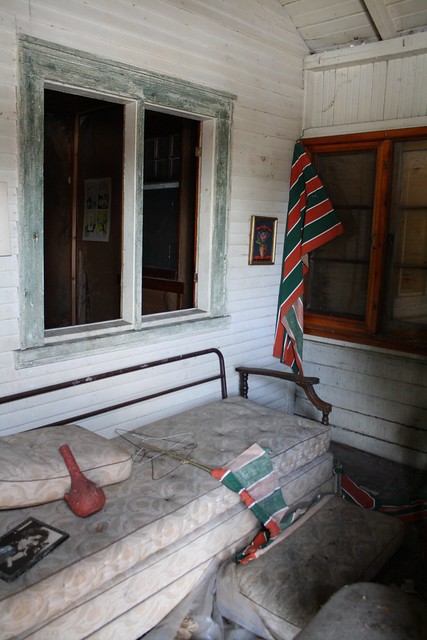
Mendel (One who comforts)
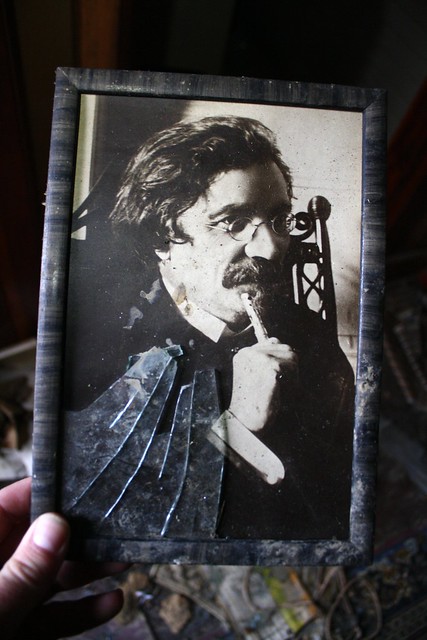
Antshel (Fortunate; blessed; happy)

Toiba (Dove)
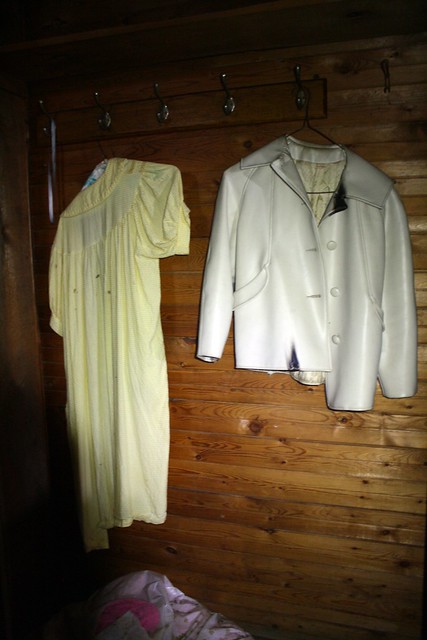
Chayele (Alive; living)
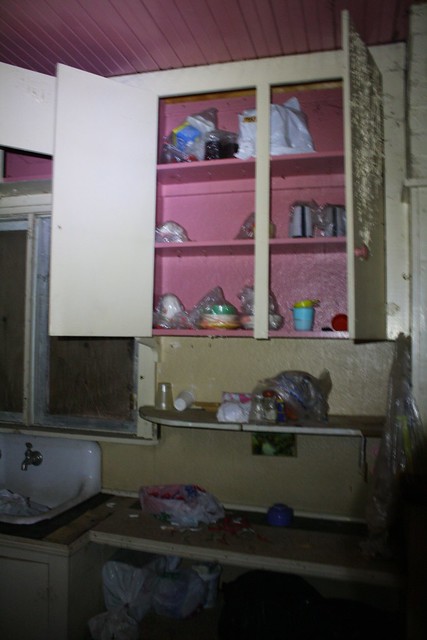
Fajga (Bird)
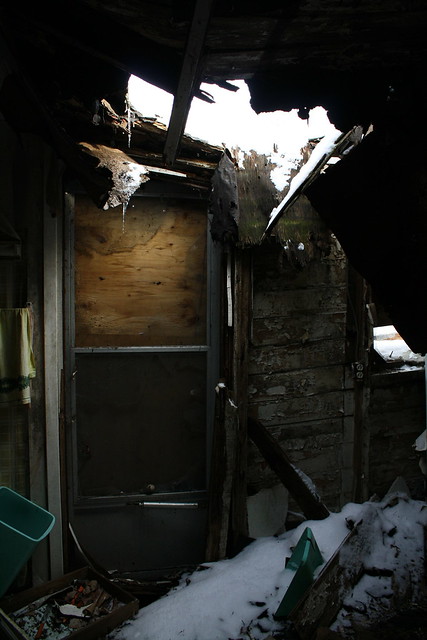
Amshel (Angel)
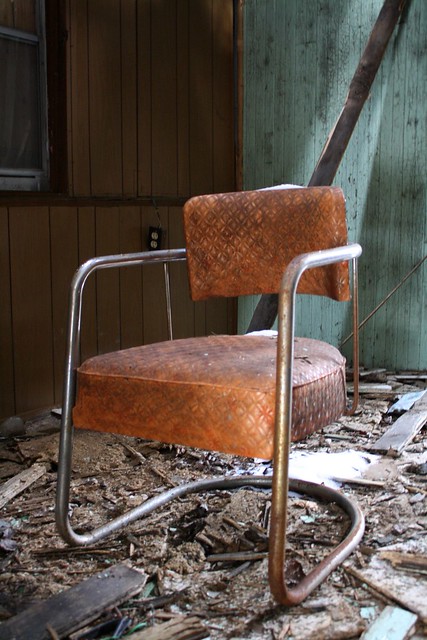
Yentl (Aristocrat)
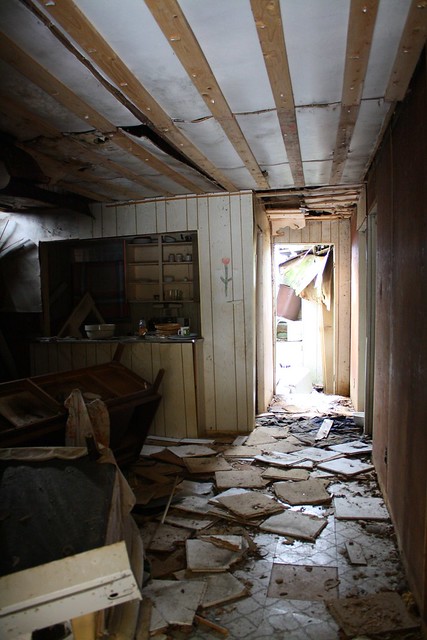
Sisel (Sweet)
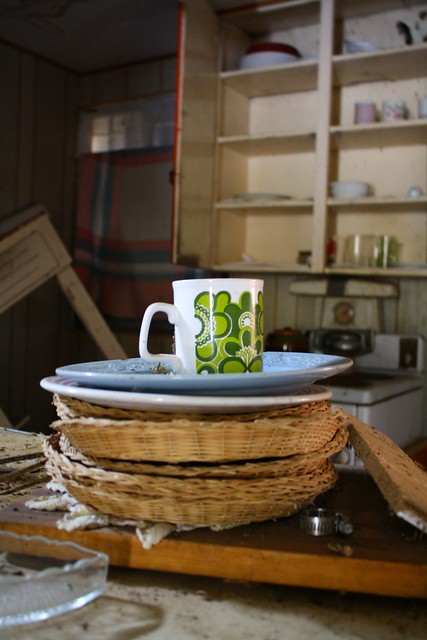
Reyna (Pure; clean)

Yossel (He will enlarge)

Zaydel (Grandfather)
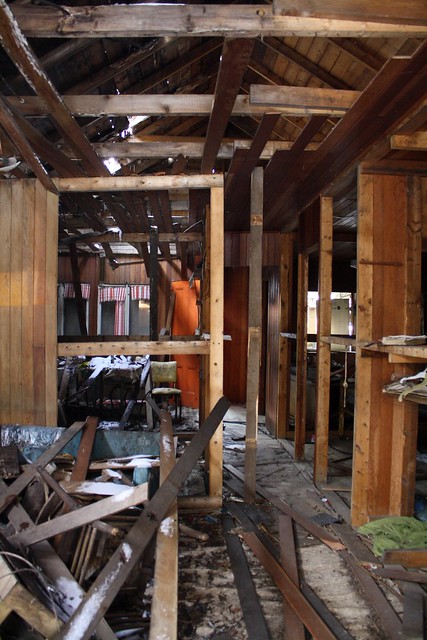
Yankel (Grasp by the heel)
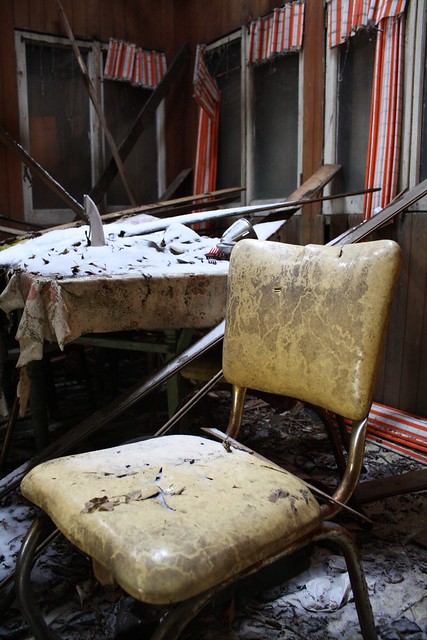
Rifka (To bind)
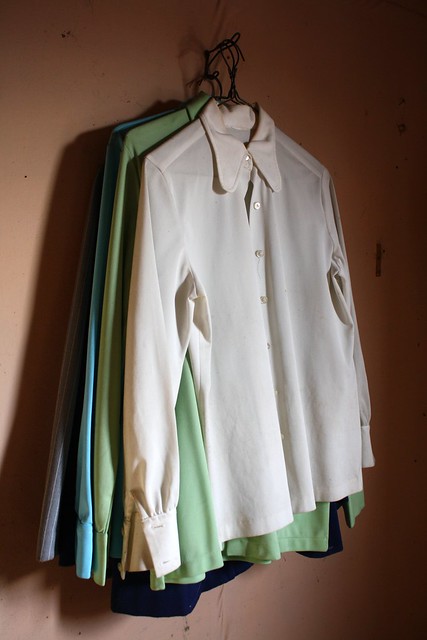
Raizel (Rose)

Iser (God wrestler)

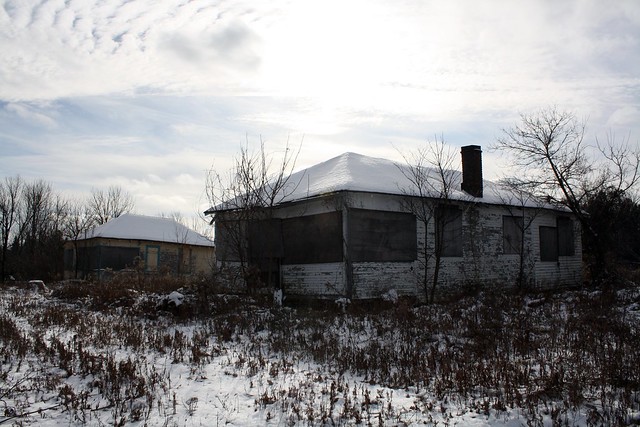
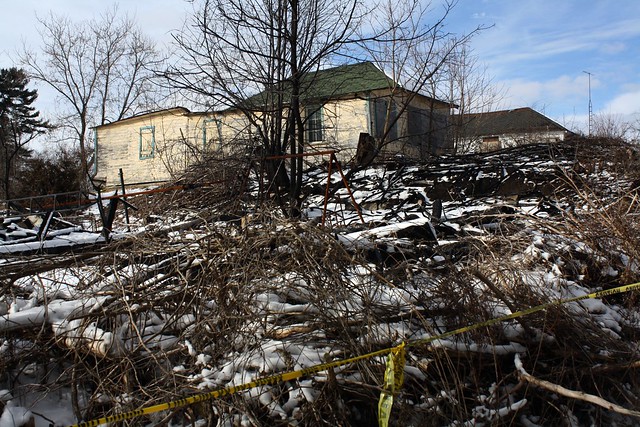
At the rear of the property, after exiting the final cabin, two male voices could be heard in the forest directly in front of us. Needless to say, we made a run for it.
In 2011, one of the cabins was set ablaze by an arsonist and it burned to the ground. Rumour has it, the cabins of Camp Yungvelt were recently surrounded by a chain link fence topped with barbed wire.
Thanks for your visit, we always enjoy when you stop by. Now it is time for us to pack up and head to the cottage. Life is what you make it. I'm making it an unforgettably awesome adventure.
Please be sure to check out my brand spanking new website, where you can see all of my urban exploration and street art exploits, listen to my music, and buy my new album and tee shirts!
click here to check out all of jerm & ninja IX's ABANDONMENT ISSUES
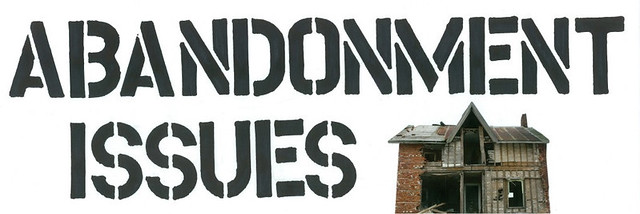

10 comments:
My brother (Lynn) and I(Paul) worked for my dad at Paulynn Park just a quarter mile up from Camp Yungvelt. I've visited the camp on several occasions back in the 60's, and the kids with their counselors would trek up to our park to have a swim in out large pool, we became friends with the counselors, and these pictures brought back some memories for me, sad that the Camp had to close down, I know the kids loved it their.
Are you sure this is in fact Camp Yungvelt and NOT the cabins that were across that winding river adjacent to both?
Are you positive that this is in fact the former Camp Yungvelt and not the cabins that were on the other side of that winding river that happens to be adjacent to both propertie? Those cabins just don't look familiar. I was a camper there in 1969 and 1970.
Thank you Robert Rosner for showing me this article! I, too, was one of the campers at this camp and yes, it was nice to see the area. With the decay and overgrowth it might be impossible to recreate what was once there, and the slope of the land looks somewhat similar, but I agree with Robert, the cabins look unfamiliar, and trust me, there were very few refrigerators, couches, kitchen tables or the like in the majority of the cabins. Most had beds or should I say "beds," and "bathrooms" but we campers did not eat or shower in the cabins. There was a mess hall and a shower building. But you accomplished something by bringing back memories for me from late 1960s. It was the time of my life.
Cliff Goldfarb
I was surprised to find out that the Camp still exists physically. I was a camper there for several years in the late 1950s. There were two sets of cabins. If this is the Camp, then these must be the guest cabins next to the farm at the entrance from the road. The campers stayed in a different set of cabins downhill and next to Duffins Creek. We used to swin in the Creek, which had a bit of a pond, created by a small dam. The water level could be raised and lowered by adding a few boards to the dam. Our overnight trips were to the mouth of the Creek at Frenchman's Bay.
I live very, very close to these houses and I just wanted to say that I am glad you have shared your stories. Growing up my friends and I would go to the creek by these houses and cross it so see what was over there. Our summers were spent trying to figure out what these houses were.
These houses may not look the same because many people wanted to get in and see what could be inside, including me and my friends. I never knew what these houses were but had always heard stories of what could have been. I haven't been there in a few years but these pictures show a lot from what I can remember.
I am looking into my familys history. My uncle worked at this camp in 1937, but was murdered...I'm trying to find any information I can. this took place in Nov 1937..I understand its a needle in a haystack, but somewhere there are answers. I can be contaced at canlady1@gmail.com Donna Sheveluk
This is definitely not Camp Yungvelt. The camp's buildings vanished years ago. This is the Workmen's Circle Colony, just on the other side of the river. Your photo of the round table is taken in what was the main room of my grandparent's (Machla and Harry Culiner) cottage. I too have taken photos of the colony, but your photos here are excellent. They show a world suddenly abandoned. Thank you very much for this.
DonnaSh, please contact me. I know a little bit about the murder. Write to me at: contact at jill dash culiner dot com
Jill is correct. These photos are of the cabins at the Workmen's Circle Colony. I worked there during the summers when I was a teen.
Post a Comment